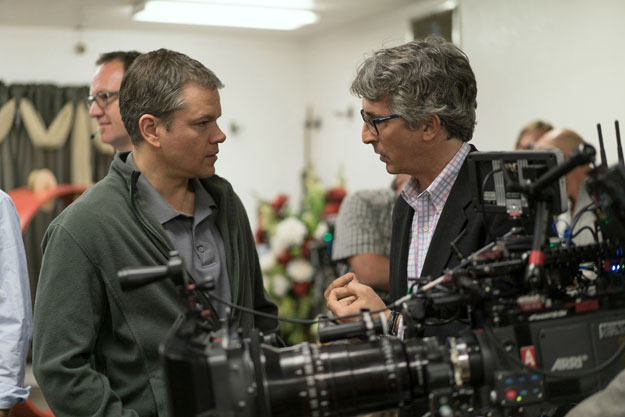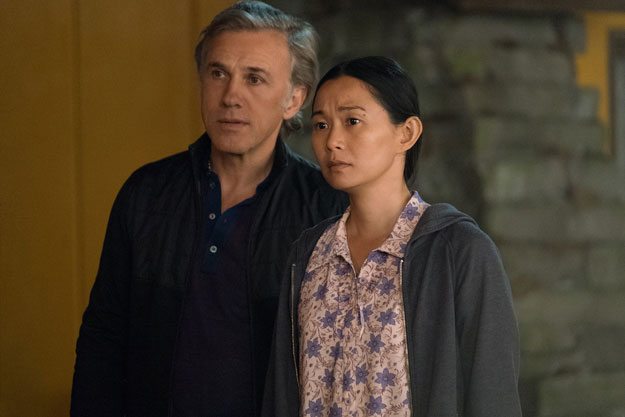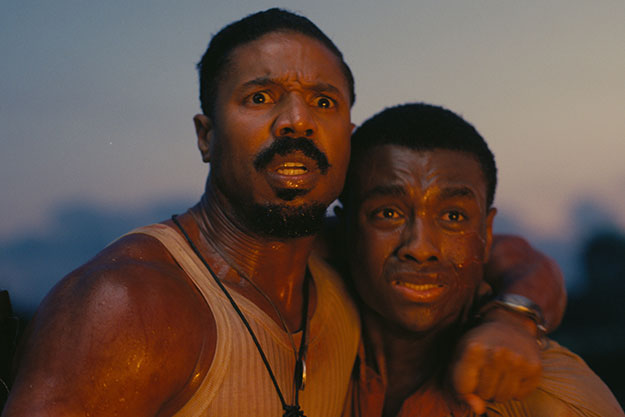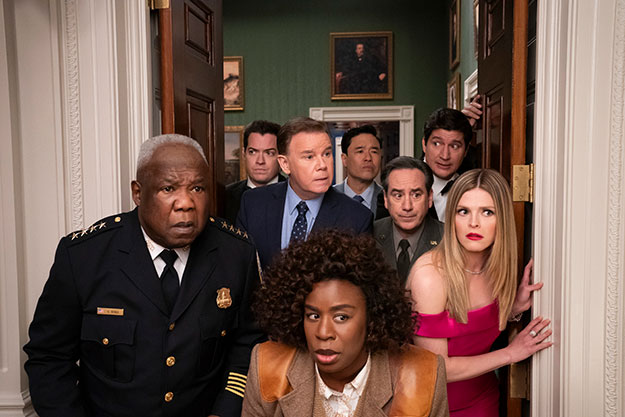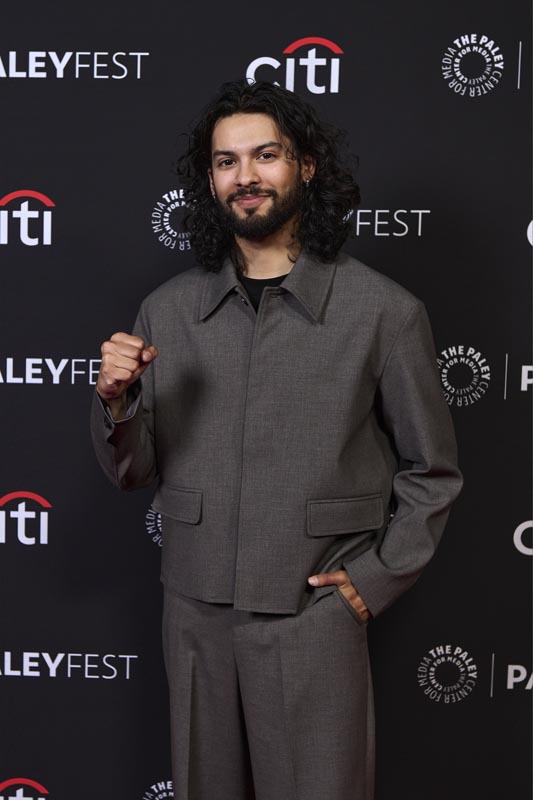Director Alexander Payne, Screenwriter Jim Taylor, and Star Hong Chau Talk ‘Downsizing’
Director Alexander Payne known for comedy-dramas like "Sideways," "The Descendants" and "Nebraska," goes big with Downsizing in this character-driven satire that goes against Hollywood's standards of what a lead actress in a big Hollywood studio movie should be, making an immigrant Asian and disabled woman, Ngoc Lan Tran played by Hong Chau, the romantic interest of the lead character Paul Safranek (Matt Damon) and the force majeure that drove the whole movie.
The film who's already creating uproars about it's intentions, it's political, environmental and socio-cultural implications had caused debate on whether the movie missed the mark, was tone-deaf as some minority groups argued or it was the push we needed to wake up and do something about these issues.
The movie imagines what might happen if a solution for the environmental woes currently affecting our planet could be solved by shrinking the population, not in quantity but in size. It's a process that involves downsizing people to 5 inches in height and allowing humanity to consume a lot less of our natural resources. Paul Safranek (Matt Damon) and his wife Audrey Safranek (Kristen Wiig) were, like many of us in America and the rest of the world, struggling financially when they heard about this groundbreaking and life-changing procedure that will shrink people to a one-fourteenth-scale.
Their size reduction means that they will have less physical needs making them in many cases instant millionaires in this new small utopian, later becoming dystopian world. Throughout the sarcasm and absurdity of the film by the third act we discover that being small is not the answer to our problems and then the movie gets deep and dark where we see that humanity will still create racial and social divisions no matter at what size.
The filmmaker doesn't sound particularly optimistic about the future but there's a lot of realism in this surrealist movie bringing controversial topics to the surface in a light-hearted way that might make you think, laugh or cry a little.
At a recent press conference in Los Angeles, Director Alexander Payne, screenwriter Jim Taylor, and star Hong Chau talk about some of the deeper themes of the film.
It feels like an Alexander Payne film because it focuses on humans and real people and the center of it all you have Paul. Alexander what made Matt Damon perfect for this role?
Alexander Payne: I needed a fantastic actor who I also would believe as an everyman, who looks more like a real human or someone I would know than like a movie star, even though he is a movie star. But then I also needed a movie star who could help bring the financing for the hefty budget we needed. At his age range, the mid 40s, there's only Matt Damon right now. He had been kind enough to tell me years past in passing "We should work together someday." So, I phoned his office and asked for an audience with Mr Damon. He granted me that. I told him the story of the script. He raised his eyebrows. I handed it to him. He phoned me a week later and accepted.
You've got a movie star and a breakout new star. Hong, tell us about coming on board. Was this a character that you could relate easily?
Hong Chau: Oh absolutely. When I first read the script, I was really blown away by all of the incredibly insightful observations about race and class and it was a story that humanises refugees and immigrants in a way that I've never seen before. My character Ngoc Lan was a revelation to me. It's somebody who I feel is very familiar, who a lot of us think that we all know but not in this way.
Hong it seems like your character is mildly controversial. People seem to think that the accent is not real, that it's a caricature or whatever. Can you talk about the way she speaks in the film?
Hong Chau: Okay, sure. When I look at my parents I don't see a stereotype. I see a human being, I see a full person. It's a little bit tricky discussing the movie because it would require me to explain the entire movie and I feel that part of the responsibility of an audience is to digest and metabolise and think about the story on their own. But I see that in this particular case the audience really needs a lot more guidance and explanation, so I'll do that.
I'm not quite sure why people are so flabbergasted to hear a person with an accent in a movie. We're surrounded by people who speak with accents. We are a nation of immigrants. In the city of Los Angeles, in any major city, we have people who work in kitchens, who do all of the labour that a lot of people don't want to do, so the movie shows the machinery, the apparatus, the value system that allows for that inequality and I don't think that showing it is problematic. Does that make sense?
Jim Taylor: I'd like to add that we've screened the movie several times now and I've had over five or six different people, Vietnamese Americans, come up to me and say 'oh my god you got my mother exactly right' or 'this is just like my aunt' and so it may seem striking to some people, the performance, this is very true. And as Hong said she really developed it from her family.
It was refreshing because we're not used to seeing immigrants portrayed as a leading lady.
Jim Taylor: It's interesting because as opposed to other films we'd made we really wanted to make this an international movie. We only set out to have a character and then what would be their experience and then how would they react meeting another character? We weren't on a mission but I'm happy to see how different people reacted to the casting.
Can you talk about how, in the film, the "haves" are shown to be prominently white European, while the "have nots" are, generally speaking, people of colour? People of colour are there very much in the background. No prominent role was given to a person of colour who was a "have".
Hong Chau: I would like to say that something that I responded to very strongly in the story is that we're showing that inequality. The people of colour who were at the apartment complex where I lived and did laundry in and sort of my side of the story were not there to prop up the white male character and show him in this great positive light. If anything, we're showing that he's part of the problem because he's not paying attention. And I don't see anything wrong with that.
Jim Taylor: The reason I think the motivation behind wanting to see those characters as described is to change the world, is to make a world a better and more equal place, and I think that we, for better or worse, were trying to write a movie that was reflective of the world. We have a choice of writing, reflecting the world in its unfairness and inequality or to create a sort of movie world that's more equal. We're not filmmakers that are setting out to do that. We're setting out to reflect what we see and the problems we see.
Mr. Payne, Hong's character is rather demanding and bossy but also funny, whereas most Asian characters portrayed in film are usually quiet and reserved. What was the inspiration for the personality of that character?
Alexander Payne: Well her background is as a highly motivated, firebrand dissident who motivates others and rallies others around her cause with some degree of monomania and a huge amount of energy. And telling people, organising people and telling them what to do – that's where that came from [laughs]. She's a ball of fire, that character. And a survivor.
Hong, your character is full of funny one-liners. Was that you? Was that in the script? Did you ad-lib? Were you allowed to?
Hong Chau: Well a lot of it was in the script and that's what I loved. I could not believe that they came up with this character because I think a lot of us have been struggling with how to tell these really important stories about people. Most of the time when people think of a refugee story or an immigrant story they immediately think it's going to be really sad and depressing.
I remember when Beasts of No Nation came out and I loved it and I saw the movie and I was trying to get everyone afterwards to watch the movie. I was like "This is a great, amazing movie. This kid, Abraham Attah, is so amazing in it!" And people would tell me, "Oh, it looks really depressing. I don't want to watch it." That's also something that we need to think about when we're trying to tell these stories about very difficult issues that a lot of people feel really uncomfortable with.
One way of doing it is to just humanise them and part of being a human is laughing. Immigrants, people of colour, we have senses of humour. We laugh. When I read the script, I didn't see it written stereotypically. Hopefully, if I did my job right, she shouldn't come across as a stereotype. And I think it's okay to laugh if someone you love says or does something peculiar. My parents make me laugh more than anyone and they also make me cry more than anyone. And I love my character and I feel like the writers love her so hopefully the audience will love her too.
See Downsizing in a theatre near you today!







